- Home
- Patricia Briggs
Smoke Bitten
Smoke Bitten Read online
Titles by Patricia Briggs
The Mercy Thompson Series
MOON CALLED
BLOOD BOUND
IRON KISSED
BONE CROSSED
SILVER BORNE
RIVER MARKED
FROST BURNED
NIGHT BROKEN
FIRE TOUCHED
SILENCE FALLEN
STORM CURSED
SMOKE BITTEN
The Alpha and Omega Series
ON THE PROWL
(with Eileen Wilks, Karen Chance, and Sunny)
CRY WOLF
HUNTING GROUND
FAIR GAME
DEAD HEAT
BURN BRIGHT
MASQUES
WOLFSBANE
STEAL THE DRAGON
WHEN DEMONS WALK
THE HOB’S BARGAIN
DRAGON BONES
DRAGON BLOOD
RAVEN’S SHADOW
RAVEN’S STRIKE
Graphic Novels
ALPHA AND OMEGA: CRY WOLF: VOLUME ONE
ALPHA AND OMEGA: CRY WOLF: VOLUME TWO
Anthologies
SHIFTER’S WOLF
(Masques and Wolfsbane in one volume)
SHIFTING SHADOWS
ACE
Published by Berkley
An imprint of Penguin Random House LLC
penguinrandomhouse.com
Copyright © 2020 by Hurog, Inc.
Penguin Random House supports copyright. Copyright fuels creativity, encourages diverse voices, promotes free speech, and creates a vibrant culture. Thank you for buying an authorized edition of this book and for complying with copyright laws by not reproducing, scanning, or distributing any part of it in any form without permission. You are supporting writers and allowing Penguin Random House to continue to publish books for every reader.
ACE is a registered trademark and the A colophon is a trademark of Penguin Random House LLC.
Library of Congress Cataloging-in-Publication Data
Names: Briggs, Patricia, author.
Title: Smoke bitten / Patricia Briggs.
Description: First edition. | New York: ACE, 2020. | Series: Mercy Thompson
Identifiers: LCCN 2019055488 | ISBN 9780440001553 (hardcover) | ISBN 9780440001560 (ebook)
Subjects: GSAFD: Fantasy fiction.
Classification: LCC PS3602.R53165 S65 2020 | DDC 813/.6—dc23
LC record available at https://lccn.loc.gov/2019055488
First Edition: March 2020
Cover art by Daniel Dos Santos
Cover design by Judith Lagerman
Map by Michael Enzweiler
This is a work of fiction. Names, characters, places, and incidents either are the product of the author’s imagination or are used fictitiously, and any resemblance to actual persons, living or dead, business establishments, events, or locales is entirely coincidental.
pid_prh_5.5.0_c0_r0
CONTENTS
Titles by Patricia Briggs
Title Page
Copyright
Dedication
Map of the Tri-Cities
Chapter 1
Chapter 2
Chapter 3
Chapter 4
Chapter 5
Chapter 6
Chapter 7
Chapter 8
Chapter 9
Chapter 10
Chapter 11
Chapter 12
Chapter 13
Chapter 14
Acknowledgments
About the Author
For Clyde, who played games with passion but never took them too seriously.
For Jean, who has a beautiful heart and kind spirit—and a gift for fun.
For Ginny, who can herd cats and make them like it.
My wonderful siblings, who taught me to love stories. Thank you.
1
“Are you okay, Mercy?” Tad asked me as he disconnected the wiring harness from the headlight of the 2000 Jetta we were working on.
We were replacing a radiator. To do that, we had to take the whole front clip off. It was a rush case on a couple of fronts. The owner had been driving from Portland to Missoula, Montana, when her car blew the radiator. We needed to get her back on the road so she could make her job interview tomorrow at eight a.m.
The task was made more urgent by the fact that the owner and her three children under five were occupying the office. She had, she told me, family in Missoula who could watch her children, but nobody but her alcoholic ex-husband to watch them in Portland, so she’d brought them with her. I wished she had family here to watch them. I liked kids, but tired kids cooped up in my office space were another matter.
To speed up the repair, Tad was taking the left side and I was working on the right.
Like me, he wore grease-stained overalls. Summer still held sway—if only just—so those overalls were stained with sweat, too.
Even his hair showed the effects of working in the heat, sticking out at odd angles. It was also tipped here and there with the same grease that marked the overalls. A smudge of black swooped across his right cheekbone and onto his ear like badly applied war paint. I was pretty sure that if anything, I looked worse than he did.
I’d worked on cars with Tad for more than a decade, nearly half his life. He’d left for an Ivy League education but returned without his degree, and without the cheery optimism that had once been his default. What he had retained was that scary competence that he’d had when I first walked into his father’s garage looking for a part to fix my Rabbit and found the elementary-aged Tad ably running the shop.
He was one of the people I most trusted in the world. And I still lied to him.
“Everything’s fine,” I said.
“Liar,” growled Zee’s voice from under a ’68 Beetle.
The little car bounced a bit, like a dog responding to its master. Cars do that sometimes around the old iron-kissed fae. Zee said something soft-voiced and calming in German, though I couldn’t catch exactly what the words were.
When he started talking to me again, he said, “You should not lie to the fae, Mercy. Say instead, ‘You are not my friends, I do not trust you with my secrets, so I will not tell you what is wrong.’”
Tad grinned at his father’s grumble.
“You are not my friends, I do not trust you with my secrets, so I will not tell you what is wrong,” I said, deadpan.
“And that, father of mine,” said Tad, grandly setting aside the headlight and starting on one of the bolts that held in the front clip, “is another lie.”
“I love you both,” I told them.
“You love me better,” said Tad.
“Most of the time I love you both,” I told him before getting serious. “Something is wrong, but it concerns another person’s private issues. If that changes, you’ll be the first on my list to talk to.”
I would not talk about problems with my mate to someone else—it would be a betrayal.
Tad leaned over, put an arm around me, and kissed the top of my head, which would have been sweet if it weren’t a hundred and six degrees outside. Though the new bays in the garage were cooler than the old ones had been, we were all drenched in sweat and the various fluids that were a part of the life of a VW mechanic.
“Yuck,” I squawked, batting him away from me. “You a
re wet and smelly. No kisses. No touches. Ick. Ick.”
He laughed and went back to work—and so did I. The laugh felt good. I hadn’t been doing a lot of laughing lately.
“There it is again,” said Tad, pointing at me with his ratchet. “That sad face. If you change your mind about talking to someone, I’m here. And if necessary, I can kill someone and put the body where no one will find it.”
“Drama, drama,” grumbled the old fae under the bug. “Always with you children there is drama.”
“Hey,” I said. “Keep that up, and next time I have a horde of zombies to destroy, I won’t pick you.”
He grunted—either at me or at the bug. It was hard to tell with Zee.
“No one else could have done what I did,” he said after a moment. It sounded arrogant, but the fae can’t lie, so Zee thought it was true. I did, too. “It is good that you have me for a friend to call upon when your drama overwhelms your life, Liebling. And if you have a body, I can dispose of it in such a way that there would be nothing left to find.”
Zee was my very good friend, and useful in all sorts of ways besides hiding dead bodies—which he had done. Unlike Tad, Zee wasn’t an official employee of the garage he’d sold to me after teaching me how to work on cars and run the business. That didn’t mean he was unpaid, just that he came and went on his own terms. Or when I needed him. Zee was dependable like that.
“Hey,” said Tad. “Quit chatting, Mercy, and start working. I’m two bolts up on you—and one of those kids just knocked over the garbage can in the office.”
I’d heard it, too, despite the closed door between the office and us. Additionally, just before the garbage can had fallen, I’d heard the tired and overworked mom try to keep her oldest from reorganizing all of the parts stored (for sale) on the shelving units that lined the walls. Tad might be half fae, but I was a coyote in my other form—my hearing was better than his.
Despite the possible destruction going on in the office, it felt good to fix the old car. I didn’t know how to fix my marriage. I didn’t even know what had gone wrong.
“Ready?” asked Tad.
I caught the cross member as he pulled the last bolt. A leaking radiator was something I knew how to make right.
* * *
• • •
Before I’d left work, I had showered and changed to clean clothes and shoes. Even so, when I got home, I’d gone across the back deck to go in the kitchen door because I didn’t want to risk getting anything from the shop on the new carpet.
I’d disemboweled a zombie werewolf on the old carpet, and one of the results of that was that I’d finally discovered a mess that Adam’s expert cleaning guru couldn’t get out of the white carpet. All of it had been torn up and replaced.
Adam had picked it out because I didn’t care beyond “anything but white.” His choice, a sandy color, was practical and warm. I liked it.
We’d had to replace the tile in the kitchen a few months earlier. Slowly but surely the house had been changing from the house that Adam’s ex-wife, Christy, had decorated into Adam’s and my home. If I’d known how much better I’d feel with new carpet, I’d have hunted down a zombie werewolf to disembowel a long time ago.
I toed off my shoes by the door, glanced farther into the kitchen, and paused. It was like walking into the middle of the last scene in a play. I had no idea what was causing all the tension, but I knew I’d interrupted something big.
Darryl drew my eye first—the more dominant wolves tend to do that. He leaned against the counter, his big arms crossed over his chest. He kept his eyes on the ground, his mouth a flat line. Our pack’s second carried the blood of warriors of two continents. He had to work to look friendly, and he wasn’t expending any effort on that right now. Even though he knew I’d come into the house, he didn’t look at me. His body held a coiled energy that told me he was ready for a fight.
Auriele, his mate, wore an aura of grim triumph—though she was seated at the table on the opposite side of the kitchen from Darryl. Not that she was afraid of him. If Darryl was descended from Chinese and African warlords (and he was—his sister, he’d told me once, had done the family history), Auriele could have been a Mayan warrior goddess. I had once seen the two of them fight as a no-holds-barred team against a volcano god, and it had been breathtaking. I liked and respected Auriele.
Auriele’s location, which was as far as she could get from Darryl and remain in the kitchen, probably indicated that they were having a disagreement. Interestingly, like Darryl, she didn’t look at me, either—though I could feel her attention straining in my direction.
The last person in the kitchen was Joel, who was the only pack member besides me who wasn’t a werewolf. In his presa Canario form, he sprawled out, as was his habit, and took up most of the free floor space. The strong sunlight streaming through the window brought out the brindle pattern that was usually hidden in the stygian darkness of his coat. His big muzzle rested on his outstretched paws. He glanced at me and then away, without otherwise moving.
No. Not away. I followed his gaze and saw that the door to Adam’s soundproofed (even to werewolf ears) office was shut. As I turned my attention back to the occupants of the kitchen, my gaze fell on my stepdaughter’s purse, which had been abandoned on the counter.
“What’s up?” I asked, looking at Auriele.
Maybe my voice was a little unfriendly, but Jesse’s purse, the shut door of Adam’s office, Darryl’s unhappiness, and Auriele’s expression combined to tell me that something had happened. Probably, given the people involved and my insight into a few things going on in Jesse’s life, that something had to do with my nemesis, Adam’s ex-wife and Jesse’s mother, Christy.
The bane of my existence had finally returned to Eugene, Oregon, where I’d optimistically thought she might be less of a problem. But Christy had a claim on my husband’s protection and a stronger claim on my stepdaughter’s affection. She was going to be in my life as long as they were in my life.
Christy’s strikes on me seldom rated a level above annoyance. She was good at subtle attacks, but I’d grown up with Leah, the Marrok’s mate, who had been, if not as intelligent, infinitely more dangerous.
I would pay a much higher price than dealing with Christy to keep Adam and Jesse. That didn’t mean I was going to be happy about her anytime soon. I might be able to take her on just fine, but she hurt Adam and Jesse on a regular basis.
Auriele’s chin rose, but it was Darryl who spoke. “My wife opened a letter meant for someone else,” he said heavily.
“This is your fault,” she snapped—and not at Darryl. “Your fault. You have Adam, her place in the pack, the home that she built, and you still won’t let Christy have anything.”
I might like Auriele, but the reverse was not true because Christy had a way of making everyone around her hyperprotective of her. Auriele was a dominant wolf, which meant she started out protective anyway. Christy just put all of Auriele’s instincts into overdrive.
Still, I couldn’t see her opening anyone else’s mail because I was Adam’s wife instead of Christy. I decided I didn’t have enough information to process her accusations.
So I asked for clarification. “You opened a letter from Christy? Or for Christy?”
“No,” said Darryl, staring at his mate. “She opened a letter for Jesse.”
Auriele glanced at the table, and I noticed, for the first time, that on the table in front of Auriele was a stack of mail. On the top of the stack was a white envelope with Washington State University’s distinctive cougar logo—and all the pieces clicked.
I pinched my nose. It was a gesture that Bran, the Marrok who ruled all the packs in North America except ours, did so often that it had spread to anyone who associated with him for very long. Since I’d been raised in his pack, it was bound to get to me sooner or later. It didn’t help with the frustration, though I felt
like it helped me focus. Maybe that was why Bran used it.
“Oh, for the love of Pete,” I said. “Jesse told me she was going to call her mom a week ago. Let me guess—she put it off until yesterday or this morning. And Christy called you. You came over, found the letter from WSU on the table—”
“In the mailbox,” said Darryl.
I raised my eyebrows, and Auriele’s chin elevated a bit more and her shoulders stiffened. Yep, even in her current state of Christy-born madness, she was a little embarrassed about that one.
“We got here just as the mail carrier left,” she said stiffly. “I thought we could take the mail in.”
“You found the letter in the mailbox,” I corrected myself. “And, given the urgency and trauma that Christy expressed to you about her daughter’s change of plans, you had to open it to find proof that dire shenanigans were afoot.”
Jesse had been accepted to the University of Oregon in Eugene, where her mom lived. She had also been accepted to the University of Washington in Seattle, where Jesse’s boyfriend, Gabriel, was attending school.
Both were good schools, and she’d let her mother think that she’d been debating about which way to go. Adam and I had both been sure she intended to follow Gabriel—boyfriends outranked parents. I understood why Jesse hadn’t wanted to tell her mother—witness the current scene with Auriele. Though putting it off had just been postponing the explosion.
But all of Jesse’s schooling plans had changed thanks to recent events. Our pack had acquired some new and very dangerous enemies.
A week ago Jesse told me she’d decided to stay here and go to Washington State University’s Tri-Cities campus. I’d agreed with her reasons. Jesse was a practical person who made generally good choices when her mother wasn’t involved. The only advice I’d given Jesse was that she needed to tell Adam and Christy sooner rather than later.
“Hah,” Auriele said with bitter triumph, pointing at me. “I told you it was Mercy’s idea.”
I opened my mouth to retort, but the door to Adam’s office jerked open and Jesse stalked out, her cheeks flushed and her fists clenched. She glanced past me at Auriele and gave her a betrayed look that lasted for a long moment until she rounded the corner and took the stairs at a pace that was not quite a run.

 Wolfsbane
Wolfsbane When Demons Walk
When Demons Walk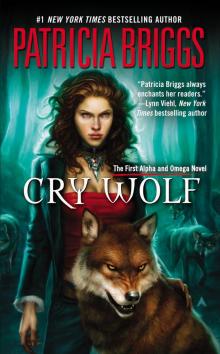 Cry Wolf
Cry Wolf On the Prowl
On the Prowl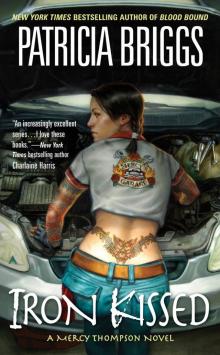 Iron Kissed
Iron Kissed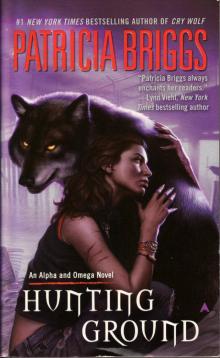 Hunting Ground
Hunting Ground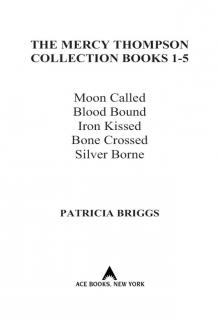 Patricia Briggs Mercy Thompson: Hopcross Jilly
Patricia Briggs Mercy Thompson: Hopcross Jilly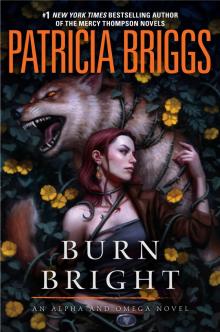 Burn Bright
Burn Bright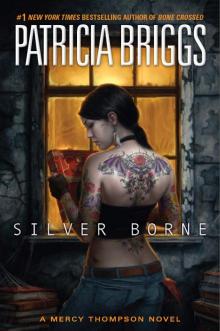 Silver Borne
Silver Borne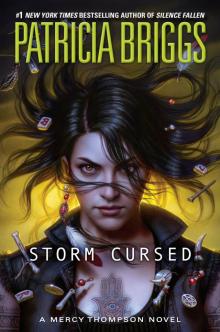 Storm Cursed
Storm Cursed Shifting Shadows
Shifting Shadows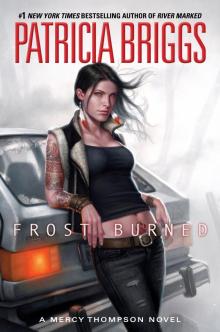 Frost Burned
Frost Burned River Marked
River Marked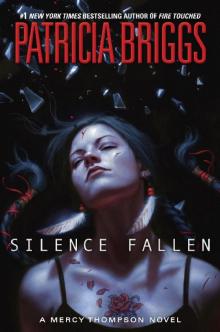 Silence Fallen
Silence Fallen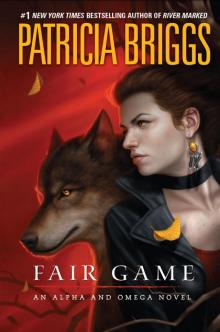 Fair Game
Fair Game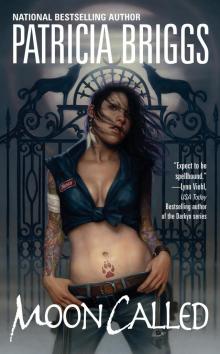 Moon Called
Moon Called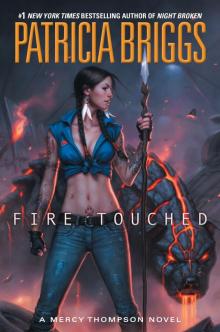 Fire Touched
Fire Touched Dead Heat
Dead Heat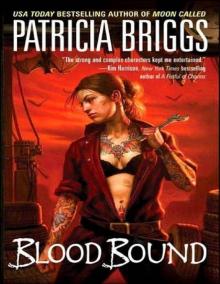 Blood Bound
Blood Bound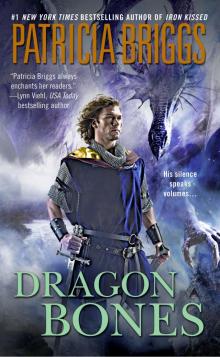 Dragon Bones
Dragon Bones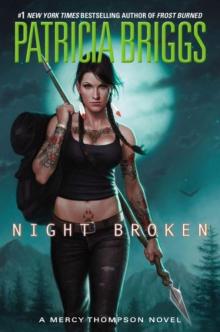 Night Broken
Night Broken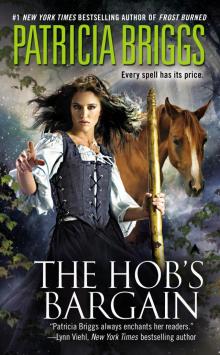 The Hobs Bargain
The Hobs Bargain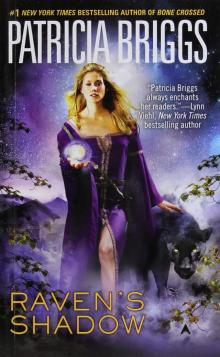 Ravens Shadow
Ravens Shadow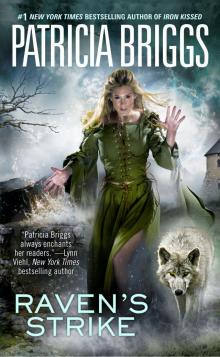 Ravens Strike
Ravens Strike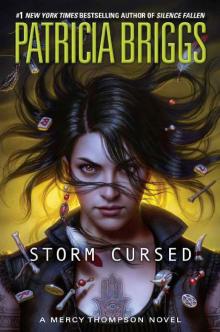 Storm Cursed (A Mercy Thompson Novel)
Storm Cursed (A Mercy Thompson Novel)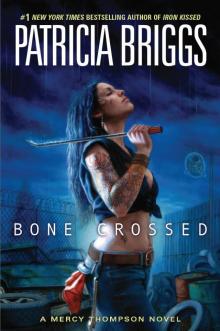 Bone Crossed
Bone Crossed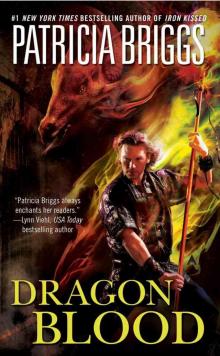 Dragon Blood
Dragon Blood Smoke Bitten: Mercy Thompson: Book 12
Smoke Bitten: Mercy Thompson: Book 12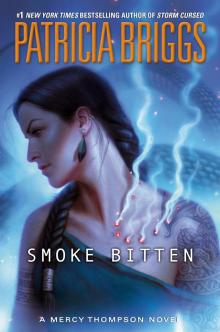 Smoke Bitten
Smoke Bitten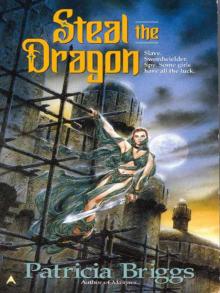 Steal the Dragon
Steal the Dragon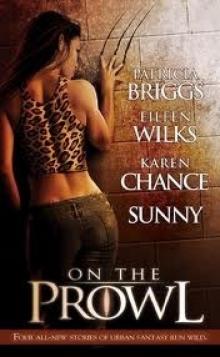 0.5 On The Prowl (alpha and omega)
0.5 On The Prowl (alpha and omega)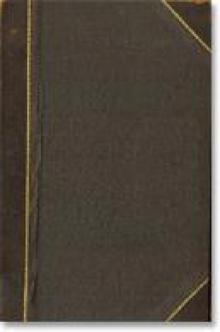 Alpha and Omega
Alpha and Omega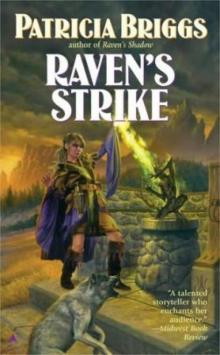 Raven's Strike rd-2
Raven's Strike rd-2![[Mercy 03] - Iron Kissed Read online](http://i1.bookreadfree.com/i/03/24/mercy_03_-_iron_kissed_preview.jpg) [Mercy 03] - Iron Kissed
[Mercy 03] - Iron Kissed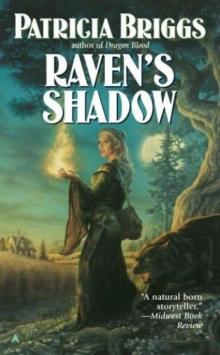 Raven's Shadow rd-1
Raven's Shadow rd-1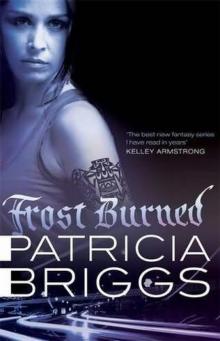 Frost Burned mt-7
Frost Burned mt-7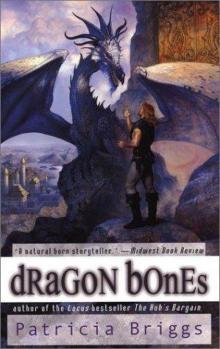 Dragon Bones h-1
Dragon Bones h-1 Shifting Shadows: Stories from the World of Mercy Thompson
Shifting Shadows: Stories from the World of Mercy Thompson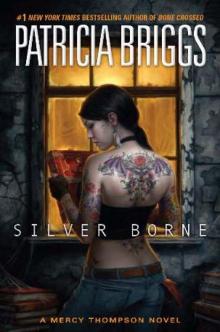 Silver Borne mt-5
Silver Borne mt-5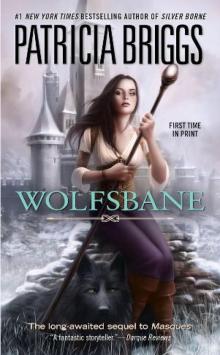 Wolfsbane s-2
Wolfsbane s-2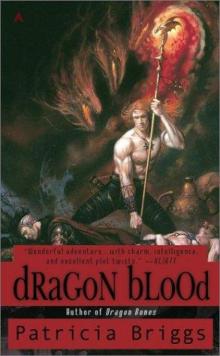 Dragon Blood h-2
Dragon Blood h-2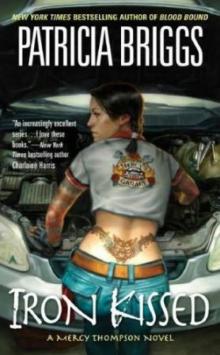 Iron Kissed mt-3
Iron Kissed mt-3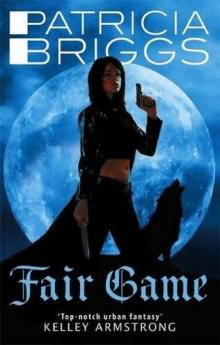 Fair Game aao-3
Fair Game aao-3 Masques s-1
Masques s-1![[Hurog 01] - Dragon Bones Read online](http://i1.bookreadfree.com/i1/04/03/hurog_01_-_dragon_bones_preview.jpg) [Hurog 01] - Dragon Bones
[Hurog 01] - Dragon Bones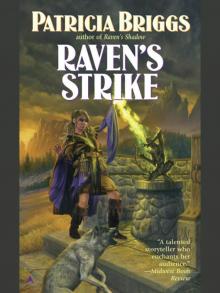 Raven s Strike
Raven s Strike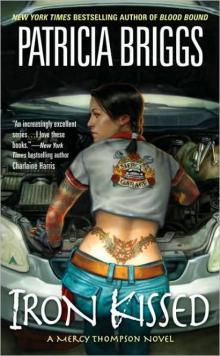 Mercedes Thompson 03: Iron Kissed
Mercedes Thompson 03: Iron Kissed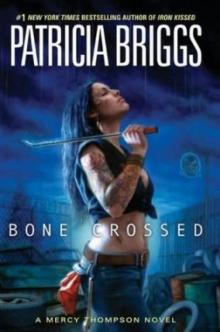 Bone Crossed mt-4
Bone Crossed mt-4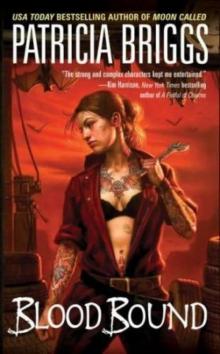 Blood Bound mt-2
Blood Bound mt-2![[Mercy 01] - Moon Called Read online](http://i1.bookreadfree.com/i2/04/09/mercy_01_-_moon_called_preview.jpg) [Mercy 01] - Moon Called
[Mercy 01] - Moon Called River Marked mt-6
River Marked mt-6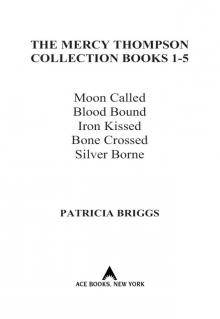 The Mercy Thompson Collection
The Mercy Thompson Collection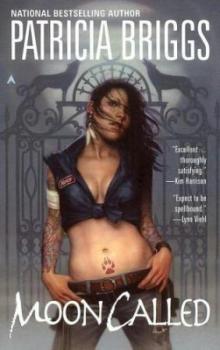 Moon Called mt-1
Moon Called mt-1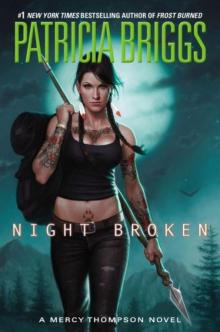 Mercy Thompson 8: Night Broken
Mercy Thompson 8: Night Broken